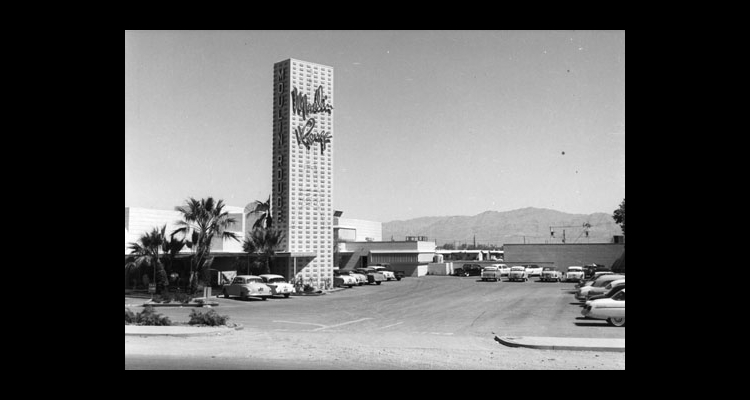Sarann Knight Preddy, Entrepreneur
Sarann Knight Preddy provides a unique perspective on women and gaming, as the first Black woman to receive a Nevada gaming license.
Born on July 27, 1920, in Eufaula, Oklahoma, she migrated to Las Vegas in 1942 with her parents and husband. They settled in the Las Vegas Black community, the Westside, and because her father was a carpenter, immediately built a home. Many African Americans lived in tents and shacks due to the lack of materials caused by the war, coupled with the challenge Blacks faced when attempting to purchase real property. Obtaining the financing necessary for a car was different. Preddy remembered that it was not unusual to see a big, impressive, shiny new car in front of a shack because everybody was working and had money, but Blacks just could not seem to qualify for a home loan.
Preddy gravitated to Jackson Street, the Black business district, to seek employment, and soon became a Keno writer in the Cotton Club. The business district was peppered with a series of nightclubs, restaurants, beauty and barber shops, clothing establishments, and small grocery stores. Preddy gained business acumen in the gaming industry, and when her husband accepted an employment opportunity in Hawthorne, Nevada, she joined him and became the owner of her first gaming venue. For $600, which she borrowed from her father, she bought Hawthorne's one club for Blacks, renamed it the Tonga Club, and operated it for seven years. The gaming license she obtained for that club gave Preddy the distinction of being the first Black to own a gaming license in Nevada. She remembers the club becoming successful as a result of her barbecue sauce recipe, in addition to the games of chance.
Preddy returned to Las Vegas after the Moulin Rouge Hotel Casino, the first integrated resort property in Las Vegas, opened and closed in 1955. She operated the Playhouse Lounge for a year before going to work at Jerry's Nugget as an experiment. The National Association for the Advancement of Colored People (NAACP) had been told that Jerry's Nugget would hire a black dealer if the association could send in a qualified person. Preddy accepted the challenge, intending to work at the North Las Vegas casino for six months. She stayed there for seven years. She remembers a congenial environment where profit-sharing was one of the benefits.
Then the entrepreneurial spirit struck again and Preddy went back into business for herself as owner and operator of The People's Choice. Poker, slots, and "21" proved to be popular, pleasing the crowd for six or seven years. Preddy then decided to try her hand and business acumen at the Moulin Rouge. Since its 1955 opening and closing, the resort had passed through several owners, never again realizing the success it had enjoyed in its heyday. The Rouge was doomed, and in the late 1990s, the doors were closed. The famed hotel casino burned to the ground in 2003, but first Preddy and others secured the Moulin Rouge's designation in the National Register of Historic Places.
The ultimate entrepreneur, Preddy owned a dry-cleaning business and a clothing store, in addition to several nightclubs that featured gambling. She actively participated in community activities by facilitating fashion shows, planning fundraisers for worthy causes, running for the Las Vegas City Council, serving on the local NAACP Executive Board, and organizing the Women's Auxiliary to the local NAACP branch. In addition, Preddy joined the Nevada Voter's League, became a founding member of the Las Vegas Barbara Jordan Democratic Club, and played a leadership role in a business sorority, Gamma Phi Delta.
Sarann Preddy worked with a group of Black women to organize the Las Vegas Black Historical Society to ensure the accurate inclusion of African Americans in the story of Las Vegas. She passed away in December 2014.
Article Locations
Related Articles
None at this time.


